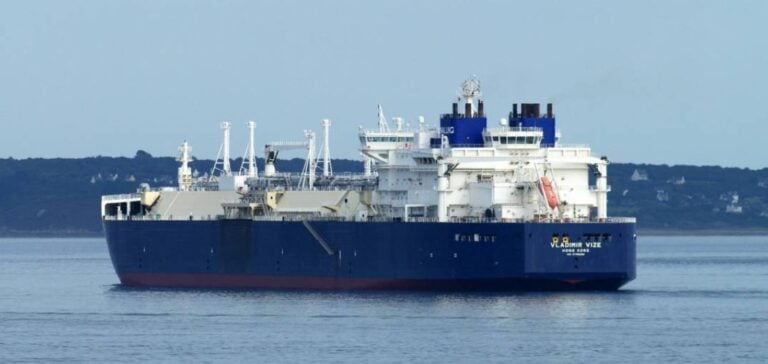The European Union has announced new sanctions against Russia, affecting 19 vessels, including several oil tankers and liquefied natural gas (LNG) tankers, in order to step up economic measures in response to the war in Ukraine. This decision, taken when the 14th sanctions package was adopted, is designed to reduce Russia’s ability to circumvent the sanctions already in place.
Background and Details of Sanctions
Among the sanctioned vessels are the Saam and Koryak floating gas storage units belonging to Novatek, Russia’s leading LNG exporter. These vessels, used for transshipment of LNG from Arctic LNG 2, were already subject to US sanctions. The lack of ice-class vessels in Russia makes these transshipments crucial to maintaining LNG supplies. The sanctions also include ships involved in transporting defense equipment for Russia and stolen Ukrainian grain shipments. The cargo ship Enisey is accused of having transported these grains.
Economic and strategic implications
The addition of these ships to the list of entities sanctioned by the EU may not have an immediate impact, as they are already operating under Western restrictions. However, this measure complicates Russia’s ambitions to increase its global LNG market share from the current 8% to 20% by 2030-2035. According to Nicoleta Tuominen, partner at Dentons, these sanctions will make it more difficult to access spare parts, engineers, insurance, financing, and navigation and safety equipment essential to ship operations. Russia will have to find inferior or more expensive alternatives.
Future analysis and outlook
Russia’s ability to circumvent sanctions, including the G7-imposed oil price cap, remains a challenge. Russian exporters manage to sell their oil at high prices, particularly in India, thanks to a growing network of transporters and intermediaries. However, new EU sanctions could hamper these efforts in the long term. The potential impact of these measures could include a reduction in Russia’s ability to finance its military activities in Ukraine and wider disruption to its energy sector. The effectiveness of sanctions will depend on their rigorous application and on international cooperation. The EU, despite having less leverage than the US, hopes that these measures will lead to a gradual reduction in the operational capabilities of the Russian maritime fleet, affecting its long-term economic and strategic ambitions.
The current sanctions underline the EU’s commitment to intensifying economic pressure on Russia, while seeking to protect its own energy interests and those of its allies. The success of these measures will largely depend on the resilience of Russian supply chains and Moscow’s ability to find viable alternatives.





















